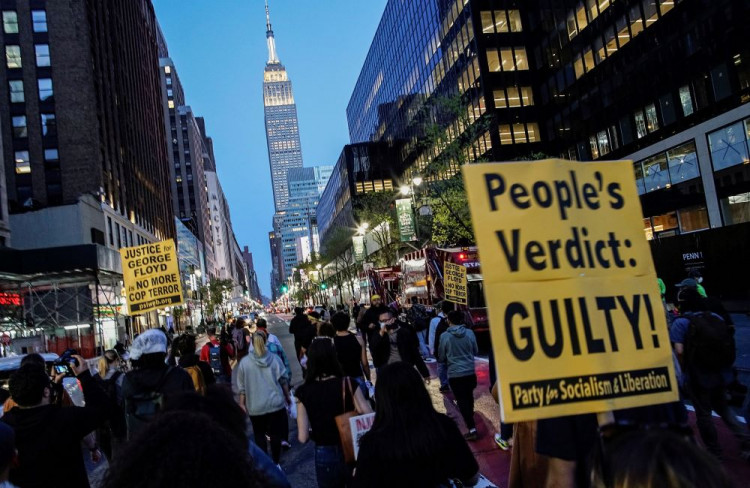Five years after George Floyd's death ignited a global movement for racial justice, many of the reforms it inspired are being reversed, memorials dismantled, and federal investigations dropped. The Minneapolis intersection where Floyd was killed-transformed into a makeshift memorial and renamed George Floyd Square-remains the focal point of ongoing community tensions over how his legacy should be preserved.
Angela Harrelson, Floyd's aunt, who still refers to him by his middle name, Perry, said: "He would call me and say, 'What's up, auntie? Just calling to check on you,'" recalling how those phone calls brought her comfort. "It's a safe haven for me to sit and reflect on everything that has happened," she said of the square.
Since 2020, the site has grown into a space of protest and remembrance. It now hosts murals, sculptures, and headstones commemorating other Black individuals killed by police. But debates over its future remain unresolved. Minneapolis officials proposed a flexible layout that would allow traffic to pass, except during commemorative events. Floyd's family would be allowed to build a permanent memorial.
The Minneapolis City Council rejected that plan, opting instead for a pedestrian mall that would permanently close one leg of the intersection. Then-Mayor Jacob Frey vetoed the council's plan, only for the council to override the veto in February.
"The way in which the city is approaching that is saying, essentially, 'Let's run buses and cars across the very place where George Floyd was killed,'" Council member Robin Wonsley said. "And that, for me, is a signal of erasure."
But Andrea Jenkins, who represents the area and supports reopening the intersection to traffic, cited a University of Minnesota survey showing that about 70% of nearby residents preferred full transportation access. Construction is not expected to finish before 2027.
Meanwhile, the Department of Justice announced last week that it will end investigations into the Minneapolis Police Department and retract findings of misconduct in multiple cities, including Louisville and Phoenix. Harmeet Dhillon, assistant attorney general for the Civil Rights Division, said the department would no longer pursue consent decrees with cities, including one already approved by the Minneapolis City Council in January.
Minneapolis Police Chief Brian O'Hara, who assumed his role in 2022, expressed disappointment over the DOJ's withdrawal but said reform efforts would continue. "People have a very, very basic need to feel safe, and that has been taken away for a lot of people because of everything that's happened since," he told CBS News.
The Minneapolis Police Department remains short-staffed by about 200 officers. "We don't have enough homicide investigators. I mean, it's been that critical at times," O'Hara said.
O'Hara emphasized his focus on rebuilding community trust and shifting the department's culture, which has involved new training programs, revised arrest tactics, and efforts to re-instill professional pride. "In my experience, the people who are here today are dramatically different from the impression that I had of this department in 2020," he said.
Community members such as Omar Mohammed say they've noticed positive changes. "The new chief did a great, great job, because what I see now is, before, police used to pull over everybody... A lot of big things changed, that's what I see," Mohammed told CBS.
As Floyd's family prepares for a three-day commemorative festival at the square, Harrelson said the fight to honor his memory continues. "It has not changed how people feel about what happened five years ago. They still carry that pain. They still carry that weight," she said.
Murals and protest art collected from the aftermath of Floyd's death have also become symbols of that ongoing struggle. Leesa Kelly, executive director of Memorialize the Movement, said she began collecting plywood art from boarded-up businesses to preserve the community's response. "It's just been really beautiful to see how we've been able to take something so tragic and still be able to build something powerful," she said.
According to a recent Pew Research Center survey, only 27% of Americans now believe Floyd's death led to meaningful change for Black Americans, down from 40% in 2023.






